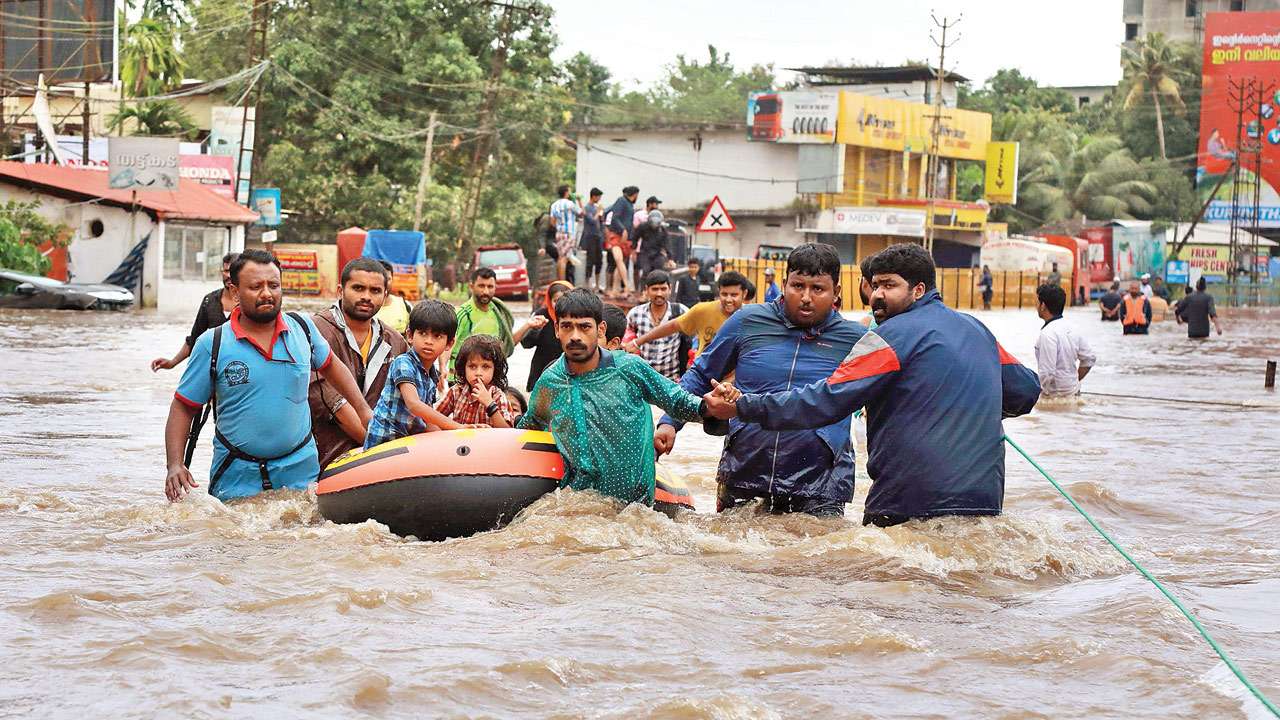
The recent spate of extreme weather conditions in our country has had all of us in a state of confusion. Over the past few months, India has experienced drought-like situations in certain parts of the country and floods in another ensuring that climate change has become a serious problem for the country to deal with. This unpredictability in climate change is disrupting the health and economy of the country for which an inclusive and constructive approach needs to be undertaken to ensure that our quality of life is not severely impacted.
Climatic change is something that has been troubling not just India but the world for some time now. A recent report by the World Bank titled South Asia’s Hotspots details the impact of temperature and precipitation changes on human life. This report is very important for policy and lawmakers working across the globe to recognise how these variations in weather can impact the living patterns and productivity of people across countries.
India too is no exception. Our country needs to recognise the impact of the environment and climate change on human health and productivity and take an integrated approach in dealing with the challenges at a national and state level. So far, measures to address the rapid change in climate has not been at the forefront of the country’s agenda which it urgently needs to ensure that not just the health of the populace but other sectors too are not affected.
Variations in temperature and rainfall play a major impact on agriculture, farm labour practices and approaches, worker productivity, economic growth, migration patterns, and human and animal health.
While all these sectors are important, policy makers need to focus first on human health which is especially vulnerable as extreme heat and variations in rainfall can cause infectious disease patterns and other risk factors like air pollution. Water contamination too is a key contributing factor to the burden of diseases that India is currently facing.
It is quite clear that a behavioural and lifestyle change is required in the larger cities of our country across all age groups. To help in this area, adopting a harmonised way of living which incorporates more elements of the environment and adopting natural processes should be encouraged. For instance, it has been recognised through research that green spaces in cities reduces levels of depression and temperatures. So we need to mitigate the effect of the variations in climate by increasing green cover in cities to reduce growing air pollution levels. Roads need to be lined with trees that provide life giving oxygen and encourage citizens to use walk spaces instead of transport for short distances. These clean and walkable pathways that are disabled-friendly with easy access to public transport can increase physical activity levels across all age groups. This improves mental health and is good for the heart too.
Efforts have already been taken in this regard. The Ahmedabad Municipal Corporation (AMC), Indian Institute of Public Health Gandhinagar (IIPHG) and the Natural Resources Defense Council (NRDC) has implemented a Heat Action Plan during the extreme summer months which includes a warning system, alerts and a public awareness campaign to educate citizens, and especially vulnerable communities, on how to deal with extreme heat situations. The commitment by the government has been commendable and implementation of efforts which also engage communities such as painting the roofs white to reduce temperatures, is also noteworthy.
Past generations have adopted practices and approaches that have helped communities tide over seasons. Whether it is nimbu pani or buttermilk on a hot summer day, or milk and turmeric in winter, researchers and scientists must be encouraged to conduct research and document the benefits of “age old practices” that have endured the test of time. Alternative energy sources like solar and wind power must be encouraged at the community level as they are more environment friendly and thus better for human health.
State governments must also develop a strong surveillance of diseases and monitoring systems for variation in climatic conditions. Installation of reliable early warning systems can inform communities and ensure preparedness. This approach needs to be multi-sectoral as various departments must work in tandem to ensure effective implementation and reach.
Research and studies on effect of climate change and variations in temperature on vulnerable groups like farmers, labourers, construction workers and other groups must be encouraged so that adaptive methods can be implemented. Policy makers need to encourage knowledge sharing and cross-learning so the best practices can be localised and implemented for the benefit of the people. Only through this will India become an environmentally resilient country and a healthy one too.
The writers work with the Public Health Foundation of India (PHFI). The views expressed are personal.